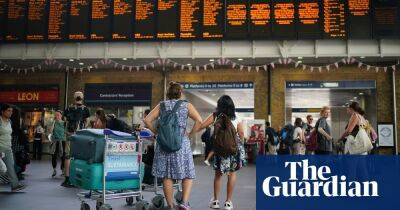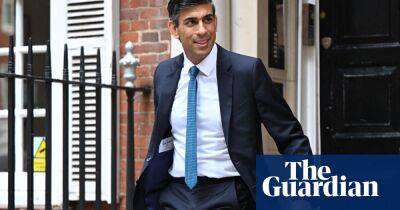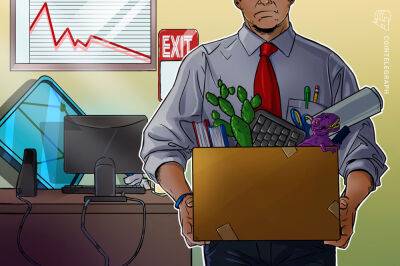UK summer of unrest? Strikes in the air from barristers to NHS
The UK, some front pages claim, is heading into a 1970s-style summer of unrest, with strikes erupting across the public sector. It is the case that, as well as rail workers, other professions are considering industrial action, but plans vary and much of the disquiet has been building for some time:
From midnight on Monday, 40,000 members of the RMT union are to begin the first of three one-day strikes which will mean limited or no rail services across much of Great Britain. London Underground staff will also strike on Tuesday.
The biggest rail strikes in three decades, involving staff from Network Rail and for 13 train operators, are partly about pay, although the RMT is only seeking a 7% rise, below the forecast rate of inflation. The union is also seeking assurances on compulsory redundancies, hours and other working conditions.
Rail firms argue that overhauls are needed, in part to adapt the network to a post-pandemic era in which travel patterns have changed and peak-time passenger numbers reduced.
Eight out of 10 defence barristers backed industrial action because of what they said was the government’s refusal to properly fund legal aid, not only affecting their incomes but exacerbating a major backlog in the courts.
From 27 June, defence barristers will refuse to take on new cases, which will then have to be delayed.
Teachers in England could strike in the autumn, subject to a ballot, if their demand for a significant pay rise is not met, the National Education Union (NEU) has warned.
The NEU, the biggest teachers’ union, is seeking a pay rise of at least 9%, with the union’s head, Mary Bousted, saying the profession had seen a real-terms drop in wages of about 20% since 2010.
Teachers “simply cannot carry on with the
Read more on theguardian.com



















